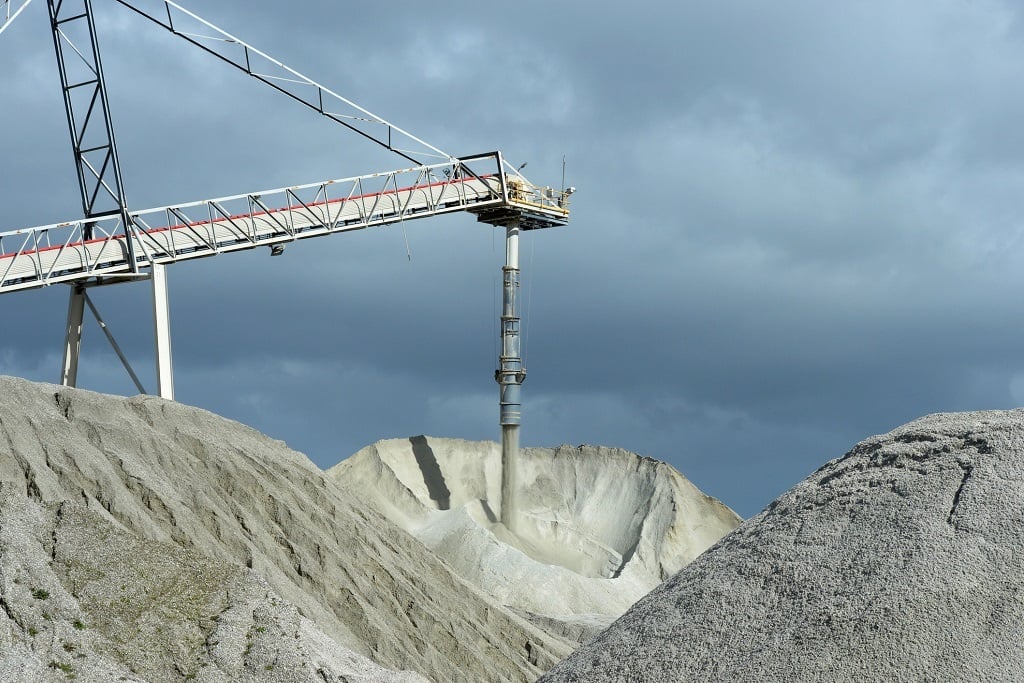
- African countries are developing policies to control the exploitation and export of minerals critical in the green industry.
- Ghana is the latest to approve a green minerals policy to help manage the exploitation and production of lithium.
- Namibia and Zimbabwe have banned the export of unprocessed lithium and other critical minerals.
- For climate change news and analysis, go to News24 Climate Future.
As global demand for green minerals such as lithium, copper and cobalt surges, African countries are developing policies to control the exploitation and export of these critical minerals.
Ghana is the latest country to announce the approval of a green-minerals policy to help manage the exploitation, production of lithium and help local businesses tap a multibillion-dollar industry.
Ghana's Lands and Natural Resources Minister, Samuel Jinapor, said the policy has been passed by the country's cabinet and awaits parliament's approval by the end of the year.
"The overarching goal of the policy is to ensure that exploitation of these critical minerals inure (works) to the benefit of (the) people of Ghana, the true owners of these resources," Jinapor said in an official statement published by Ghana's Land Ministry.
When approved, Jinapor said, "It will form the basis for all agreements, leases, licenses, and permits for the exploitation and utilisation of our green minerals."
READ | 'Contagious' resource nationalism takes root in parts of sub-Saharan Africa
So far, two other resource-rich countries- Namibia and Zimbabwe have banned the export of unprocessed lithium and other critical minerals.
Namibia's information ministry said in early June that the country had banned the export of unprocessed crushed lithium ore, cobalt, manganese, graphite and rare earth minerals. However, it will allow small quantities of the minerals to be exported after approval by the country's mining ministry.
In December 2022, Zimbabwe also said it would only allow shipping out of concentrates, with plans to impose tax on lithium concentrates destined to export markets. The country is using the Base Mineral Export Control Act, passed in December 2022, to encourage local processing of the metal.
The two countries houses five minerals - lithium, cobalt, manganese, nickel and graphite - that are all in great demand from renewable energy industries.
Data compiled by Energy, Capital & Power, organisers of Africa's inaugural Critical Minerals Summit, slated for mid-October in Cape Town, shows that Zimbabwe can meet 20% of the world's lithium demand.
READ | Zimbabwe has banned the export of raw lithium from its globally-important reserves
Data from the energy firm also shows that the Democratic Republic of the Congo (DRC) produces 43% of the global mined lithium supply, highlighting the potential for Africa to increased control of these resources.
The International Energy Agency's Critical Minerals Policy Tracker shows there are nearly 200 policies and regulations across the globe relating to critical minerals, with over 100 of these enacted in the past few years.
"Many of these interventions have implications for trade and investment, and some have included restrictions on import or export. Globally, export restrictions on critical raw materials have seen a fivefold increase since 2009," said the IEA.
The tracker lists South Africa and DRC among African countries with active policies on critical minerals since 2018.
DRC revised its Mining Code in 2018 to include several key elements about strategic minerals which it defined as a "mineral substance that, depending on the current international economic landscape, in accordance with the vision of the government, displays a particular interest with regards to the geo-strategic context and its criticality".
The policy gives the country's prime minister, with the help of sectoral ministers, power to decide minerals deemed strategic through decrees that are debated in the council of ministers.
"Strategic minerals are traded under a taxation framework that requires any producer to pay 10% of the gross value of the commodities in tax. It is the highest mining recovery rate, even compared to precious metals (3.5%) and gemstones (6%),” according to the tracker.
South Africa has an exploration strategy aimed at attracting mineral exploration investment, reigniting mineral development, accelerating new mineral discoveries and encouraging optimal utilisation of South African mineral resources in line with the environmental, social, and corporate governance principles for sustainable growth.
READ | EXPLAINER | Where are the critical raw materials needed for the green transition?
"The plan includes a specific provision for the streamlining of regulatory requirements across licensing departments to improve turnaround time on the processing of prospecting rights," said the IEA.
South Africa lists "targeted critical minerals and metals", categorised by current or future needs. Under Minerals of the Future or Green Economy it lists cobalt, nickel, copper, zinc, lead and rare earth minerals, while vanadium and lithium fall under its Battery Minerals category.
In its Critical Minerals Market Review 2023, the IEA projects demand for critical minerals will more than triple by 2030 under a "net zero" scenario.
A doubling in size of the market for electric vehicles, wind turbines, solar panels and similar technologies over the last five years to 2022, the review showed, has pushed up both demand and investments for key critical minerals.
According to the review, the market value for key energy transition minerals market reached $320 billion in 2022 after a 30% rise in investments in 2022 and 20% in 2021.
bird story agency




 Publications
Publications
 Partners
Partners












